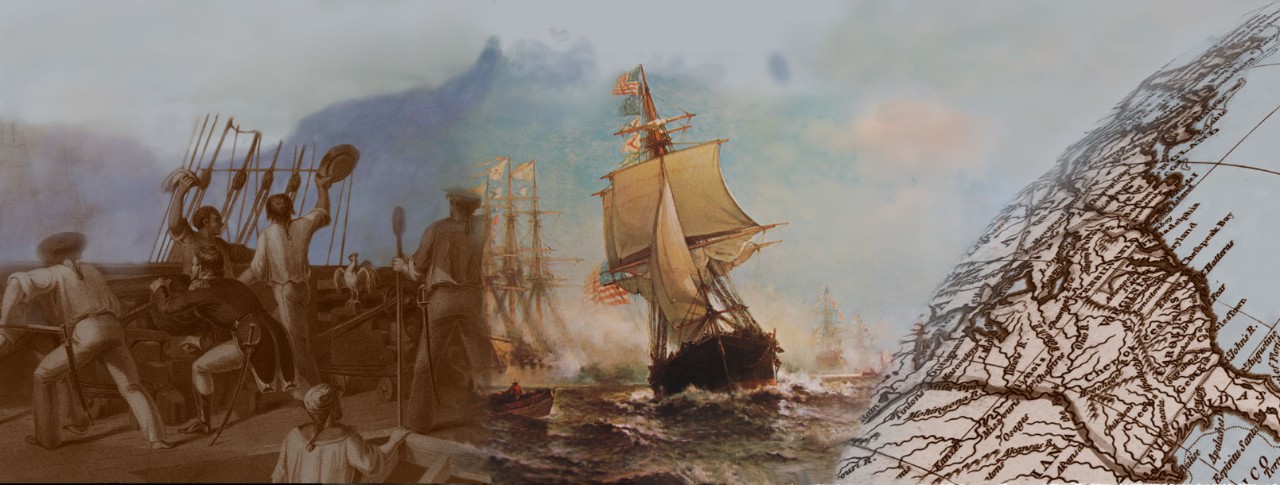
Badger, Oscar C.
Oscar Charles Badger was born on 26 June 1890 in Washington, D.C. Appointed by President Theodore Roosevelt from the District of Columbia to the U.S. Naval Academy, he graduated in June 1911 and reported to USS Utah. Commissioned an Ensign in March 1912, he was serving on board Utah during the intervention at Vera Cruz, Mexico. On 21-22 April 1914, he bravely led his company to ensure the capture of the city. For his "distinguished conduct in battle" on this occasion, he was awarded the Medal of Honor. In March 1915, he was promoted to Lieutenant Junior Grade and served in succession on board the destroyer Parker, USS Maine and USS Arizona. During World War I, he was promoted to Lieutenant and briefly reported to USS Allen then transferred to USS Porter. In the summer of 1918, he was temporarily promoted to Lieutenant Commander and commanded USS Sultanta, later transferring to command USS Worden. In December, he was assigned to the Bureau of Ordnance at Washington, D.C.
In March 1921, Badger assumed command of USS Pruitt, where his promotion to Lieutenant Commander was made permanent. In August 1922, he served on the staff of the Commander in Chief, Asiatic Fleet on board USS Huron before returning to the Bureau of Ordnance in November 1923. Two years later, he reported to USS Maryland. In August 1928, he was assigned to the Bureau of Ordnance. Promoted to Commander in June 1931, he reported to command USS Southard, transferring a year later to be the Executive Officer of USS Melville. For the next three years, Badger served at the Naval Academy. In June 1936, he became the Executive Officer of USS Indianapolis. In June 1938, he was promoted to Captain. Graduating from the Naval War College at Newport, Rhode Island, he was assigned as the Secretary to the General Board at Washington, D.C. In December 1940, he became Chief of Staff and Aide to Commander in Chief, U.S. Atlantic Fleet. In October 1941, he commanded USS North Carolina and remained as such following the United States' entry into World War II.
In September 1942,Badger was promoted to Rear Admiral and was assigned as Commander of Destroyers, Atlantic Fleet. In December, he was placed in charge of the Logistics Plans Divsions of the Joint Chiefs of Staff. In February 1944, he was appointed as Commander, Service Squadrons, South Pacific Force, which was redesignated that October as Commander, Battleship Division Seven. After a brief period as Commander, Battleship Squadron Two and Battleship Division One, Badger was promoted to Vice Admiral in December 1945 and was assigned as Commander, Naval Forces, Western Pacific, where he helped organize Operation Magic Carpet and Operation Crossroads. In May 1950, he assumed command of the Eastern Sea Frontier in New York City, New York. Following that tour, he served on the Joint Chiefs of Staff to the United Nations then assumed command of NATO Forces in the American Defense Area. In July 1952, he was placed on the temporary retired list and was promoted to Admiral when permanently retired. Oscar C. Badger died on 30 November 1959 and is buried at Arlington National Cemetery, Arlington, Virgina.
USS Badger (FF-1071), 1968-1995, was named in honor of Admiral Oscar C. Badger, as well as for all members of the Badger family who served in the U.S. Navy.
This page features, and provides links to, selected views concerning Oscar C. Badger.


